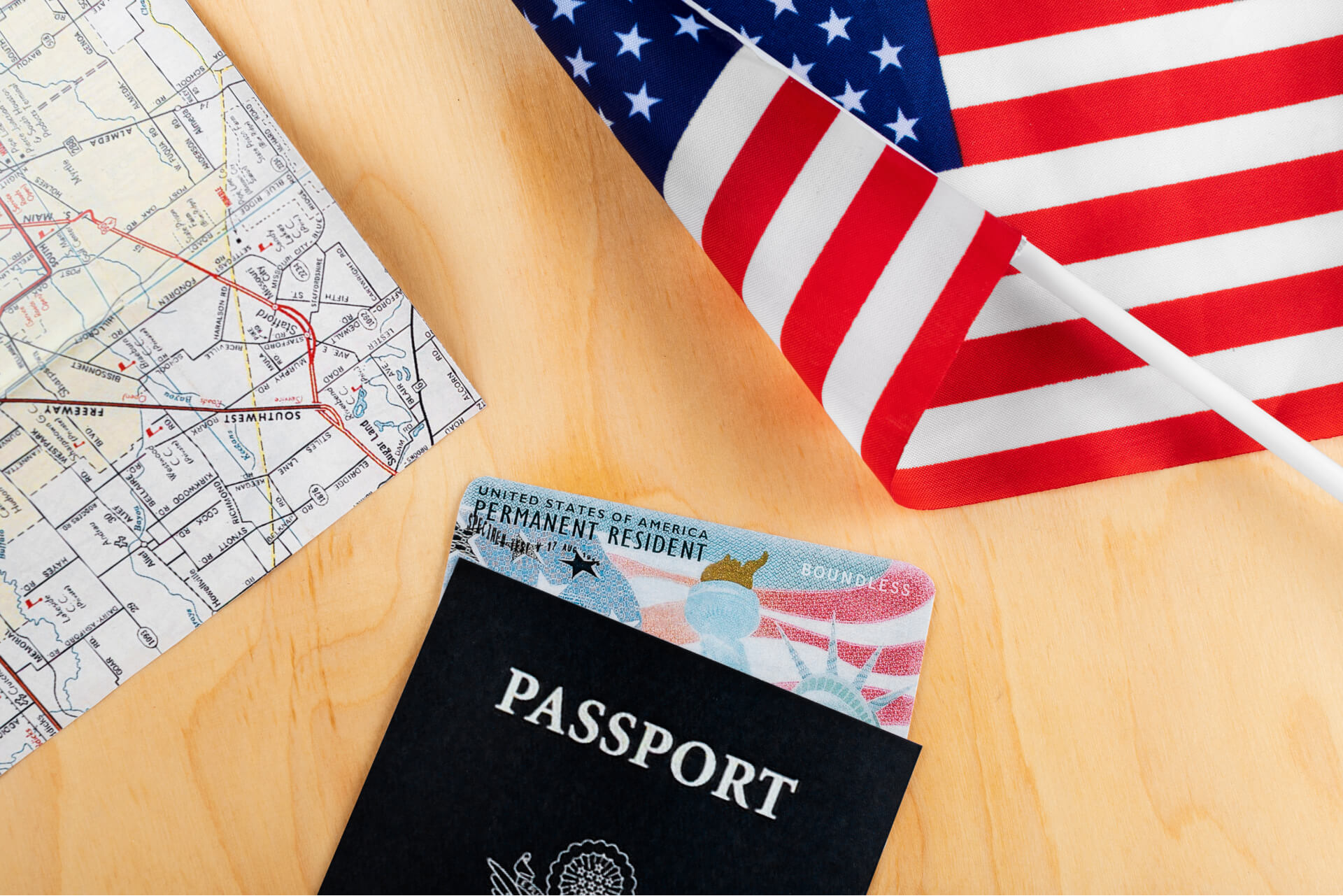Dual Citizenship
A question that comes up very often in client consultation is whether a person can hold a second citizenship along with an American citizenship. As with many issues in immigration law, the answer to this question is it depends.
I will clarify and explain the issues concerning dual citizenship by first defining some essential terms. Multiple citizenship, also called dual citizenship or multiple nationality, is a person’s citizenship status, in which a person is concurrently regarded as a citizen of more than one country under the laws of those countries.
There is no international convention which determines the nationality or citizen status of a person, which is defined exclusively by national laws, which vary and can be inconsistent with each other. Multiple citizenship issues arise because different countries use different, and not necessarily mutually exclusive, criteria for citizenship.
Informational Video – Dual Citizenship and U.S. Policies Information
The most common issue is when a person holds citizenship of several countries and one or more of those countries does not permit dual citizenship. Why would a country not permit dual citizenship? Some countries consider multiple citizenship undesirable and take measures to avoid it. Since a country has control only over who has its citizenship, but has no control over who has any other country’s citizenship, the only way for a country to avoid multiple citizenship is to deny its citizenship to people in cases when they would have another citizenship. There are several ways in which a country takes measures against dual citizenship. A country can make renunciation of prior citizenship a condition for naturalization. Similarly, a country can order denying automatic citizenship from birth if the child may acquire another citizenship automatically at birth. Some countries make a person lose their citizenship if they do not renounce the citizenship of other countries after they reach an age of majority or within a certain period of time after obtaining multiple citizenships. In other countries such as China and Austria the loss of citizenship is not voluntary but automatic if another citizenship is acquired. In countries like South Africa there is possible loss of citizenship if another citizenship is acquired voluntarily.
While some countries restrict dual citizenship, there are plenty of prominent countries that allow a person to hold multiple citizenship, albeit with certain requirements.

The U.S. allows dual citizenship. Section 101(a)(22) of the US Immigration and Nationality Act (INA) states that “the term ‘national of the United States’ means (A) a citizen of the United States, or (B) a person who, though not a citizen of the United States, owes permanent allegiance to the United States.” Therefore, U.S. citizens are also U.S. nationals. Non-citizen nationality status refers only to individuals who were born either in American Samoa or on Swains Island to parents who are not citizens of the United States. A U.S. national may acquire foreign nationality by marriage, or a person naturalized as a U.S. national may not lose the nationality of the country of birth. U.S. law does not mention dual nationality or require a person to choose one nationality or another. Also, a person who is automatically granted another nationality does not risk losing U.S. nationality. However, a person who acquires a foreign nationality by applying for it may lose U.S. nationality. In order to lose U.S. nationality, the law requires that the person must apply for the foreign nationality voluntarily, by free choice, and with the intention to give up U.S. nationality. Intent can be shown by the person’s statements or conduct. The U.S. Government recognizes that dual nationality exists but does not encourage it as a matter of policy because of the problems it may cause. Claims of other countries on dual national U.S. nationals may conflict with U.S. law, and dual nationality may limit U.S. Government efforts to assist nationals abroad. The country where a dual national is located generally has a stronger claim to that person’s allegiance. However, dual nationals owe allegiance to both the United States and the foreign country. They are required to obey the laws of both countries. Either country has the right to enforce its laws, particularly if the person later travels there. Most U.S. nationals, including dual nationals, must use a U.S. passport to enter and leave the United States. Dual nationals may also be required by the foreign country to use its passport to enter and leave that country. Use of the foreign passport does not endanger U.S. nationality.

The United Kingdom allows dual citizenship. Their laws do not require for an applicant to renounce their prior nationality when becoming a British citizen. Pproblems may arise if your first nationality does not recognize dual citizenship. Two circumstances may arise from this situation: first, you may be regarded as having renounced your first nationality upon acquiring British citizenship; or second, the authorities from your home country will refuse to recognise your second nationality.
Canada is similar in its laws regarding dual citizenship. However an applicant should research how their prior country will act if the application is successful.
As we have seen there are many issues regarding dual citizenship. An applicant has to know the laws of the country they are applying to as well as the laws of the country that they are citizens of currently. While most countries do not encourage dual citizenship, many accept it as a reality of the modern world. Even though it is complicated having dual citizenship is often a rewarding and useful experience, especially because of family or business.
Complete your immigration paperwork using our online software. We make it easy!
Complete your immigration paperwork using our online software. We make it easy!
Be aware of any changes in US immigration policy
Our robot will always keep you posted on the Facebook

Usimmigrationforms.com is not a law firm. We do not provide legal advise or opinion to our customers. If you have a complicated case or need to receive a legal advise please consult with an experienced immigration attorney.
Immigration Advocacy Service
Immigration Advocacy Service
With our Attorney Application Review option, you can choose to have an experienced immigration attorney review your application and correct any mistakes.
With our Attorney Application Review option, you can choose to have an experienced immigration attorney review your application and correct any mistakes.
Popular services
Popular services
Category
Category
1
646-838-3958 info@usimmigrationforms.com
646-838-3958
info@usimmigrationforms.com
160 Broadway 4th floor New York NY 10038
160 Broadway 4th floor
New York NY 10038
Follow us
Follow us
Receive the latest news
Receive the latest news
TERMS AND CONDITIONS | PRIVACY U.S. immigration forms is not affiliated with the USCIS or any government agency. We are not a law firm, do not provide legal advice, and are not a substitute for the advice of an attorney. Customer support is for technical and billing issues only, and will not answer legal questions. Some forms that can be completed online using our service are available and come with written instructions for free from the USCIS. U.S. immigration forms purchase price does not include any government application, biometric or filing fees. Access to and use of the usimmigrationforms.com website, as well as all cancellation, termination or refund/return policies, are subject to U.S. immigration forms Terms of Use and Privacy Policy. The “U.S. immigration forms” mark and U.S. immigration forms logo are service marks registered with the United States Patent and Trademark Office under the laws of the United States of America.
0 Comments